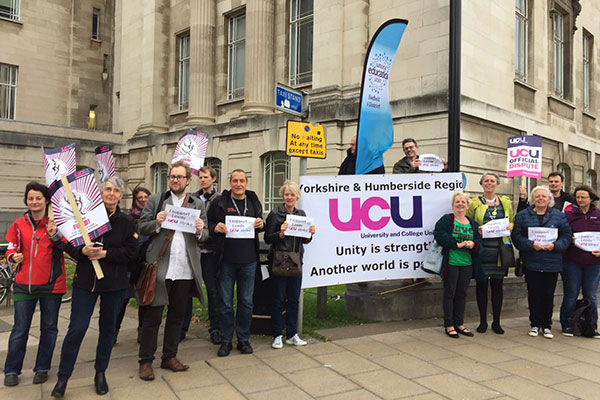The slow cancellation of the future
 Writing in the Guardian, Becky Gardiner, a senior lecturer at Goldsmiths University in London, explains why she is on strike. Although the strike in the UK universities is now into its fourth week and is ostensibly abut cuts to pensions it raises wider issues’
Writing in the Guardian, Becky Gardiner, a senior lecturer at Goldsmiths University in London, explains why she is on strike. Although the strike in the UK universities is now into its fourth week and is ostensibly abut cuts to pensions it raises wider issues’
Becky says:
My favourite banner on the picket line reads “Against the slow cancellation of the future”, a phrase popularised by the late cultural theorist, Mark Fisher. In the grip of neoliberalism, we begin to believe that there is no alternative, Fisher told us.
In universities, this slow draining of hope began with the introduction of tuition fees in 1998, and gathered pace when they were tripled in 2010. Successive governments, enthusiastically aided by overpaid senior management drawn from outside the university sector, have turned higher education into a utilitarian and consumer-driven activity that students buy in exchange for skills for the job market.
The latest idea coming from the UK Department for Education (DfE) is to introduce a ratings system would which would allow students to make “consumer-style comparisons of degree courses.” Subjects will be given a gold, silver or bronze award, and details will be made available about post-degree employment prospects, potential earnings and dropout rates, according to the DfE.
The problem for DfE is that for all their efforts educations is not a consumer good. And statistics suggest that the best indicator of potential earnings comes not from which university or indeed which subject is studies but is dependent on the social class that the student comes from. So those courses with more upper class students will have the best post employment prospects, presumably attracting more upper class students and reinforcing their positioning in the consumer style ratings. The slow cancellation of the future seems to be speeding up.
